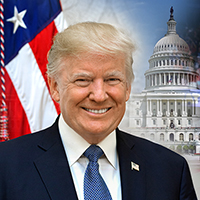Indian Americans in the Trump 2.0 Administration
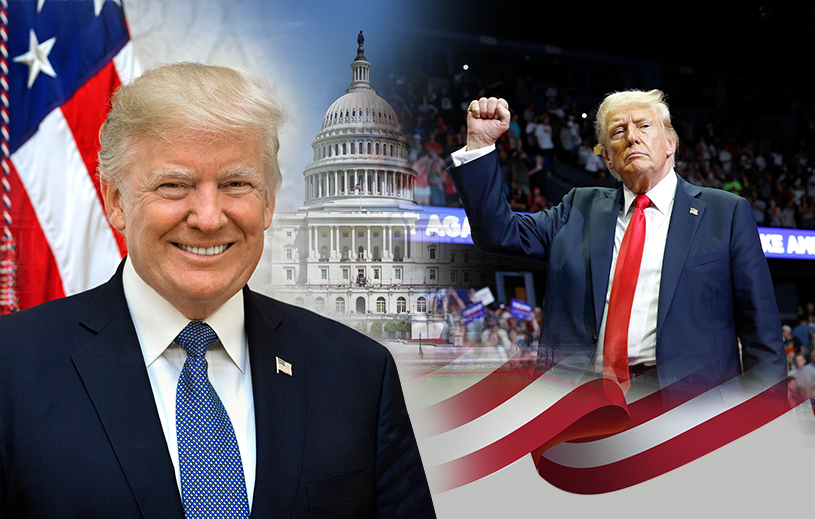
US President-elect Donald Trump has appointed several Indian-Americans for prominent roles in his second-term Cabinet, marking a significant step toward increased diversity and representation in the uppermost levels of American governance. These appointments underscore the expanding impact of Indian-American professionals in influencing U.S. policy across diverse areas, ranging from artificial intelligence to public health to national security and intelligence.
This group of appointees embodies a combination of professional excellence, cultural heritage, and Hindu values, showcasing not only their individual qualifications but also the strategic significance of the Indian-American community in advancing Trump’s larger objectives.
The Trump 2.0 Administration will bring a renewed focus on harnessing diverse talent, reflecting the growing influence of Indian Americans in shaping the future of the United States. Prominent figures like Vivek Ramaswamy, Kashi Patel, Harmeet K. Dhillon, Dr. Jay Bhattacharya, Sriram Krishnan, and Tulsi Gabbard have emerged as key appointees in this administration, signaling a significant recognition of the contributions of Indian Americans across various fields. From law and technology to public health and foreign policy, these individuals bring unparalleled expertise and experience to their respective roles. Vivek Ramaswamy, a biotech entrepreneur and thought leader, represents innovation in the economic and policy arena. Kashi Patel, known for his legal and national security acumen, offers critical insights into global strategies. Harmeet K. Dhillon, a seasoned attorney and advocate, underscores the administration’s commitment to constitutional rights. Meanwhile, Dr. Jay Bhattacharya’s work in public health policy provides a grounded scientific perspective. Tech visionary Sriram Krishnan bridges the gap between technology and governance, and Tulsi Gabbard’s pragmatic approach to diplomacy and defense rounds out this distinguished roster. These appointments not only showcase the growing prominence of Indian Americans but also reflect their pivotal role in shaping America’s future trajectory.
Briefly, let us look at the achievements of these exceptional individuals.
 Vivek Ramaswamy: A Devotee of Dharma, Championing Government Reform
Vivek Ramaswamy: A Devotee of Dharma, Championing Government Reform
Vivek Ramaswamy, a former presidential candidate, is a testament to the dynamism of Indian-American leadership. With his recent appointment to lead a proposed Department of Government Efficiency by President-elect Donald Trump, Vivek Ramaswamy now has the assignment of dismantling bureaucratic inefficiency, reducing government spending, and streamlining federal agencies. Born to parents from Kerala who migrated to this country, he is an apostle of free markets and new governance, evoking the typical entrepreneurial spirit for which the Indian-American community is celebrated.
Ramaswamy’s rise also highlights the need for policy innovation within the Indian-American community. Focusing on pragmatic solutions and using his private-sector experience, he brought a new face to governance. His contributions serve as a precedent for other Indian-American leaders who can explore unconventional routes to political success.
 Tulsi Gabbard: A Trailblazer with Hindu Roots and National Intelligence
Tulsi Gabbard: A Trailblazer with Hindu Roots and National Intelligence
Though Tulsi Gabbard was not born in India or to Indian parents, she epitomizes the diversity and common values of Hindu-American political ambitions. A former Democratic congresswoman and 2020 presidential candidate, Gabbard’s move to support the Trump administration demonstrated her capacity to negotiate challenging political environments. Her appointment as Director of National Intelligence represents her expertise in international relations and her commitment to strengthening U.S. security frameworks.
Gabbard’s political journey has also underlined the need for cultural bridges. Her willingness to engage with different political ideologies has positioned her as a unifying figure who can address complex global issues with sensitivity and tact. It is an approach that resonates well with the ethos of Indian-American leaders who seek collaboration rather than conflict.
Kash Patel: DISCIPLINE AND LOYALTY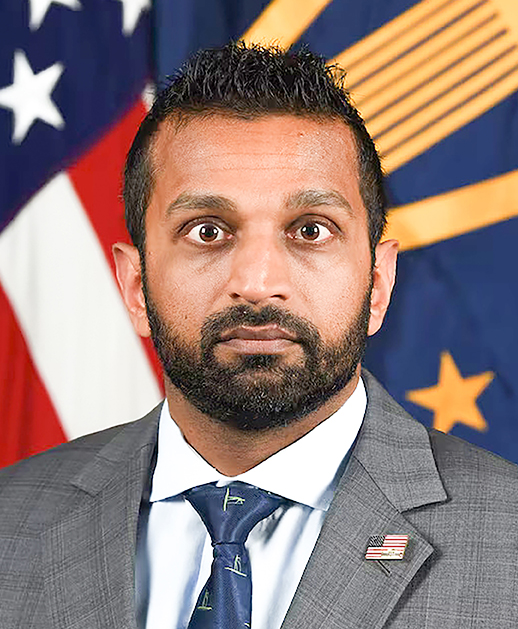 The Federal Bureau of Investigation (FBI) has appointed Kashyap “Kash” Patel, an experienced defense and intelligence professional, as its director. He is a known strategic thinker and loyal to the administration. His appointment underlines the growing trust in Indian-Americans to handle high-stakes positions in domestic and international security.Patel’s leadership assumes special significance in the context of national security. As the country is dealing with changing threats, his experience in handling the complexity of intelligence problems reflects the rising confidence in the Indian-American’s ability to serve the nation’s cause. It is a testimonial to the community’s diversity and strength. The Federal Bureau of Investigation (FBI) has appointed Kashyap “Kash” Patel, an experienced defense and intelligence professional, as its director. He is a known strategic thinker and loyal to the administration. His appointment underlines the growing trust in Indian-Americans to handle high-stakes positions in domestic and international security.Patel’s leadership assumes special significance in the context of national security. As the country is dealing with changing threats, his experience in handling the complexity of intelligence problems reflects the rising confidence in the Indian-American’s ability to serve the nation’s cause. It is a testimonial to the community’s diversity and strength. |
Dr. Jay Bhattacharya: Redesigning Public Health 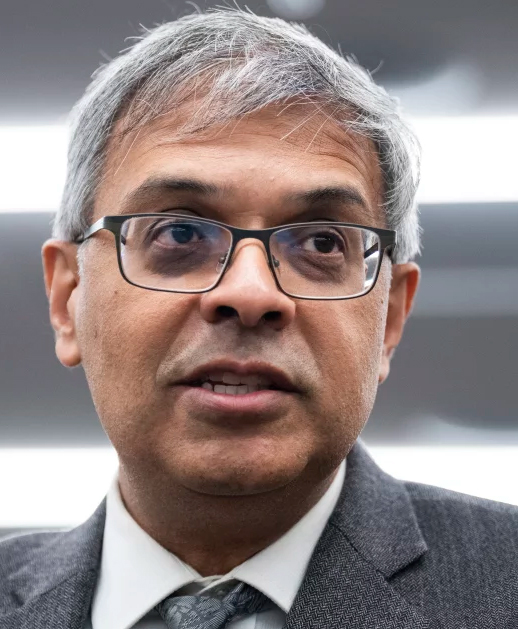 The National Institutes of Health (NIH) has selected Dr. Jay Bhattacharya, a health economist and professor at Stanford University, as its new director. With his vocal criticism of public health measures taken during the pandemic, Bhattacharya’s selection falls in line with a greater pattern of electing individuals who challenge traditional values. His research into the COVID-19 pandemic, especially the Great Barrington Declaration, brought forth debates on a national level and exposed the need for diversity in shaping public health policies.The contribution of Dr. Bhattacharya goes beyond public health policy. His advocacy for evidence-based decision-making inspired a more nuanced approach to handling health crises. This demonstrates the intellectual rigor and courage of challenging the conventional wisdom that defines Indian-American leadership. The National Institutes of Health (NIH) has selected Dr. Jay Bhattacharya, a health economist and professor at Stanford University, as its new director. With his vocal criticism of public health measures taken during the pandemic, Bhattacharya’s selection falls in line with a greater pattern of electing individuals who challenge traditional values. His research into the COVID-19 pandemic, especially the Great Barrington Declaration, brought forth debates on a national level and exposed the need for diversity in shaping public health policies.The contribution of Dr. Bhattacharya goes beyond public health policy. His advocacy for evidence-based decision-making inspired a more nuanced approach to handling health crises. This demonstrates the intellectual rigor and courage of challenging the conventional wisdom that defines Indian-American leadership. |
Usha Vance: Building Cultural Ties in Leadership 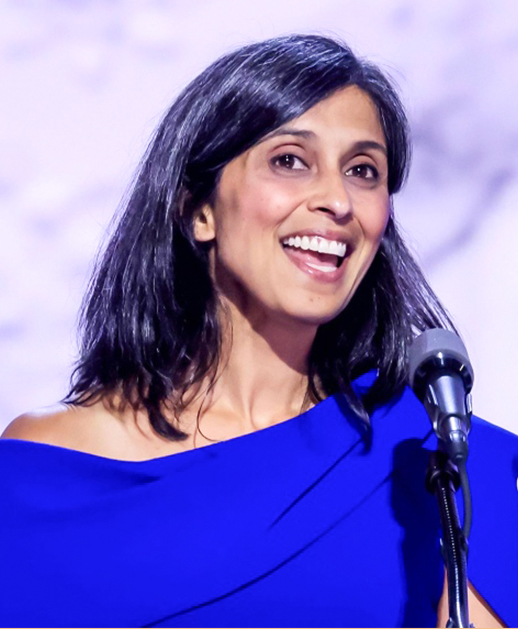 Though she does not take an active part in politics, the Indian-origin wife of Vice President-elect JD Vance brings her heritage to the forefront of national conversations. A successful litigator, Usha represents the cultural diversity and evolving narrative of Indian Americans in influential spaces. Expanding influence in policy and science Indian Americans are not only leading in the political sectors but are also making critical contributions to policy and science. Such involvement depicts their flexibility and the span of their influence. Though she does not take an active part in politics, the Indian-origin wife of Vice President-elect JD Vance brings her heritage to the forefront of national conversations. A successful litigator, Usha represents the cultural diversity and evolving narrative of Indian Americans in influential spaces. Expanding influence in policy and science Indian Americans are not only leading in the political sectors but are also making critical contributions to policy and science. Such involvement depicts their flexibility and the span of their influence. |
Harmeet K. Dhillon: A Voice for Civil Rights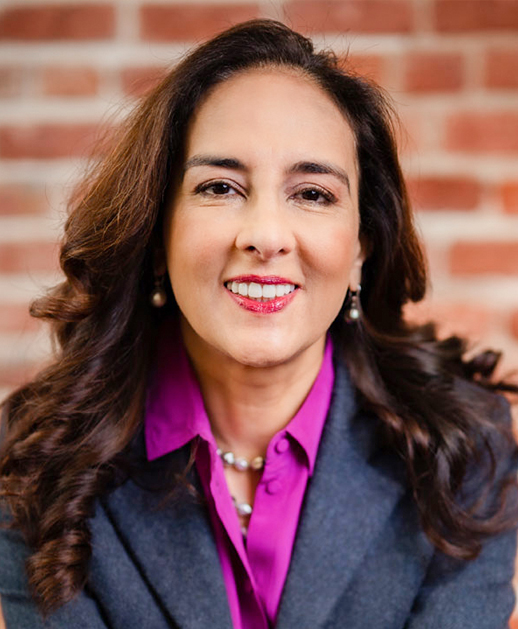 Harmeet K. Dhillon—A leading Republican and lawyer appointed for the position of Assistant Attorney General for Civil Rights, she continues to be vocal about free speech and constitutional rights, making her a strong person in civil liberty. Her recent appointment shows more Indian-Americans gaining ground in the establishment of legal and civil rights standards in the United States. Harmeet K. Dhillon—A leading Republican and lawyer appointed for the position of Assistant Attorney General for Civil Rights, she continues to be vocal about free speech and constitutional rights, making her a strong person in civil liberty. Her recent appointment shows more Indian-Americans gaining ground in the establishment of legal and civil rights standards in the United States. |
Sriram Krishnan: Innovating AI Governance Appointed as the Senior Policy Advisor on Artificial Intelligence, Sriram Krishnan is a technology entrepreneur and venture capitalist with significant career stints in the leadership teams at Microsoft, Facebook, and Twitter, now known as X. His extensive experience qualifies him to drive AI governance policy in the future for the United States. His appointment underscores the critical role Indian-Americans play in advancing technological innovation and policy.Krishnan’s role also highlights the requirement of ethical considerations in the innovation of technology. Through the emphasis on transparency and accountability, he seeks to ensure that AI systems support the interests of society. His work shows how Indian-Americans are leading the future toward a more equitable and inclusive technological landscape. Appointed as the Senior Policy Advisor on Artificial Intelligence, Sriram Krishnan is a technology entrepreneur and venture capitalist with significant career stints in the leadership teams at Microsoft, Facebook, and Twitter, now known as X. His extensive experience qualifies him to drive AI governance policy in the future for the United States. His appointment underscores the critical role Indian-Americans play in advancing technological innovation and policy.Krishnan’s role also highlights the requirement of ethical considerations in the innovation of technology. Through the emphasis on transparency and accountability, he seeks to ensure that AI systems support the interests of society. His work shows how Indian-Americans are leading the future toward a more equitable and inclusive technological landscape. |
|
Challenges and triumphs
Indian-Americans in the Trump administration have faced significant challenges in their political journey. Being a minority race, they face hurdles such as discrimination, cultural stereotyping, and underrepresentation. But they also have worked in conjunction with excellence to help overcome these barriers.
Figures like Dr. Jay Bhattacharya have faced criticism for their bold views, yet they continue to advocate for their beliefs, reflecting the community’s resilience. Similarly, leaders like Tulsi Gabbard and Kash Patel have navigated political complexities to secure influential roles. These stories of determination and success inspire the next generation of Indian Americans to pursue leadership positions.
Another significant challenge has been balancing cultural heritage with political assimilation. Indian-Americans often walk between two identities—trying to uphold their roots and embracing the requirements of American politics. This precarious balance speaks for their adaptability and commitment to creating a more inclusive political landscape.
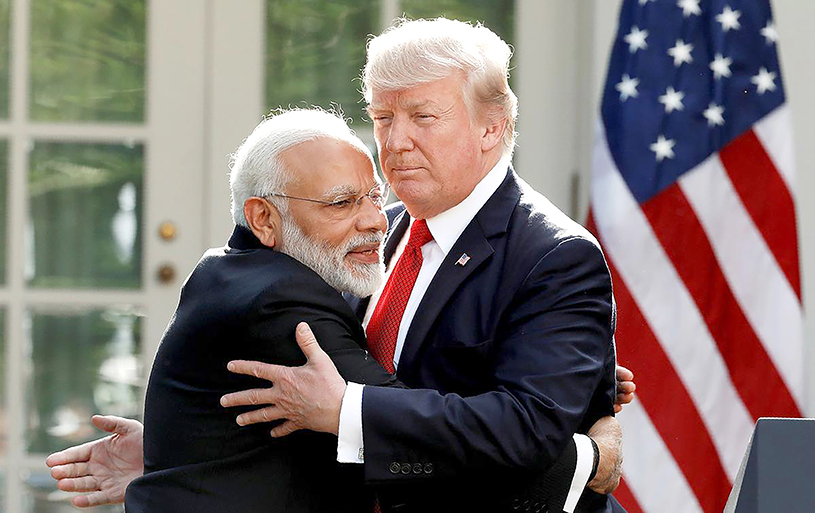
Broader Implications of Indian-American Representation
Politically, the growth of Indian-Americans represents more than the success of the individual. It is part of a greater move toward inclusion and diversity in government, infusing new perspectives into policy.
Enhancing US-India Relations
Indian-Americans often play cultural and diplomatic bridging roles for both the United States and India as they navigate important issues, including trade, defense, and health.
This bridging role has also enhanced cooperation in matters like technology transfer and educational exchange programs. Cross-border partnerships that Indian-Americans have been helping facilitate are also bringing a stronger, more connected global community into existence.
Empowering Other Immigrant Communities
The Indian-Americans’ success example serves as a model for many immigrants and outlines their potential to make meaningful contributions to their adopted countries. Their journey specifically underlines the importance of education, support from the community, and sheer perseverance.
Representing the story of Indian-American success also provides insight into how representation can build power. Overcoming barriers that were once associated with stereotypes of Indian-Americans would encourage other ethnic minorities to compete for leadership in America, contributing to the American democratic fabric.
Empowering Hindus: Navigating Challenges for a Broader Impact
The increasing prominence of Indian-Americans and specifically Hindu-Americans in significant government roles under Trump 2.0 is poised to bring both opportunities and challenges for the Hindu community in the United States and beyond. On one hand, this heightened visibility has the potential to instill pride and encourage greater participation within the community. On the other hand, it could provoke backlash from extremist groups.
In the digital realm, where derogatory terms have been employed to demean Indian-Americans, there may be increased scrutiny as the administration reinforces its support for marginalized groups. These developments could provide hope to Hindus facing persecution in countries like Bangladesh and Pakistan, even beyond the borders of the United States. The rising global prominence of Indian-Americans may prompt the U.S. to adopt a more assertive stance on religious freedom and minority rights. This could manifest as advocacy for Hindu communities facing systemic discrimination and violence, bringing their struggles to the forefront of international attention.
For Hindu-Americans, the sense of protection and pride derived from these changes could bolster their sense of belonging and security in an increasingly polarized world. The appointment of individuals with ties to Hindu traditions represents a landmark moment for Indian-Americans, highlighting their growing significance in the national narrative.
Trump’s Diwali tweet on October 31, celebrating the contributions of Hindu and Indian-Americans, further underscored the administration’s acknowledgment of this community’s influence. By honoring their cultural heritage and professional achievements, the Trump administration is solidifying Indian-Americans as a pivotal demographic in American politics. This recognition not only empowers the Indian-American community but also inspires greater political engagement. From entrepreneurship to governance, their expanding impact on American society signals a future where their voices will increasingly shape the nation’s discourse.
 The future of Indian-Americans in U.S. politics
The future of Indian-Americans in U.S. politics
With their increasing political and civic engagements, we expect the influence of the younger generation of Indian Americans to grow further. The new wave of leaders will continue advocating for diversity, inclusivity, and equitable policies, ensuring governance reflects the multicultural fabric of the United States.
It is the story of breaking barriers but also of redefining the American dream—from grassroots activism to federal leadership. Contributions by Indian-Americans are shaping a more inclusive and progressive future for the nation.
Their success also testifies to the power of representations and the belief that diversity adds strength to a democracy. It is through politics that Indian Americans continue to surge forward, providing proof of their ideals of equal opportunity and illustrating that the United States is a land of possibility for all dreamers.

